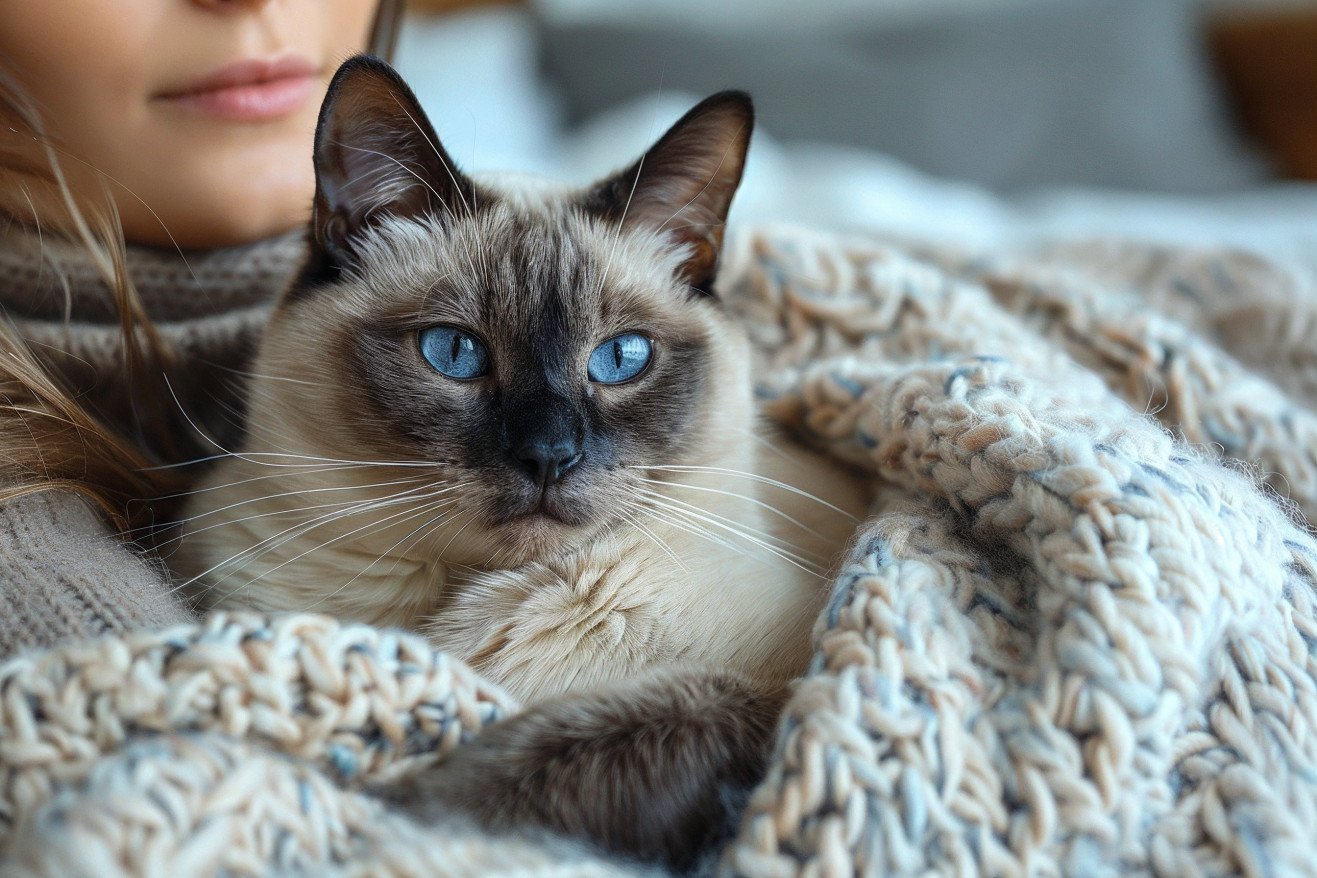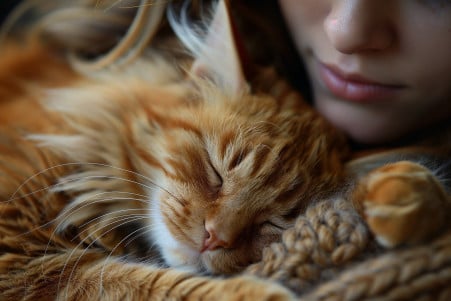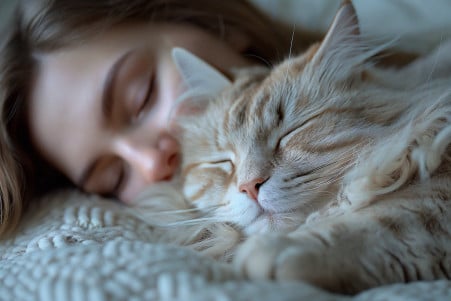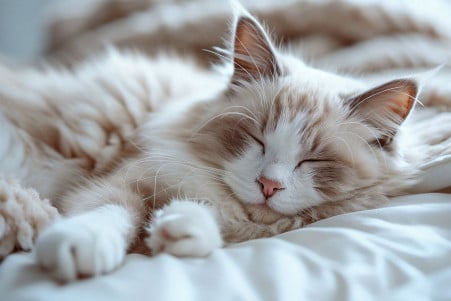Why Do Cats Lay on Your Chest? The Comforting Reasons
25 April 2024 • Updated 25 April 2024

Have you ever looked down to see your cat snuggled up on your chest and wondered why they do it? It turns out that cats lay on your chest because it's a comforting place. The warmth and the movement of your chest as you breathe is reminiscent of nursing when they were kittens. Your heartbeat is also soothing. And, of course, your cat is marking you as their territory and showing their trust in you.
While all of these reasons are comforting and loving, we'll explore the specific evolutionary and psychological reasons that cats have for taking over this prime piece of human real estate. With evidence from animal behavior, evolutionary biology, and even human-animal interaction research, you'll learn more about your cat's mind and how this behavior helps to strengthen your relationship.
Why do cats lay on your chest?
The Evolutionary Advantage of Chest-Sitting
Cats are territorial animals, and sitting on their owners is a way to claim them. This behavior likely evolved as a way for cats to mark their owners with their own pheromones, which would signal to other cats that the human was already claimed. In this way, the behavior of chest-sitting would have been evolutionarily advantageous.
For kittens, staying close to their mothers meant better chances of survival, warmth, and nourishment. As cats became domesticated, this instinct was transferred to their human owners. The act of sitting on the chest would have helped to strengthen the bond between the cat and the human, ensuring that the human would provide the care and protection that the mother cat would have.
Evolutionary biologists have suggested that cats that engaged in behaviors that strengthened their bonds with their humans would have been more likely to get resources and protection from their humans. Over time, this would have meant that cats that slept with their humans would have been more likely to survive and reproduce, and this would have reinforced the behavior. So while your cat's chest-sitting may seem like an adorable quirk, it's actually an evolutionary behavior that helps to solidify your role as a surrogate parent.
Psychological Benefits of Cats Sleeping With You
Cats are known to seek out their owners' beds and bodies for psychological reasons, including comfort and security. The Ranch Pet Resort explains that the familiar smells, body heat, and sounds of their owners can help cats feel less stressed and anxious. Being close to their humans also helps cats meet their social and bonding needs.
This is especially true for cats with medical issues or in old age, according to the Catonsville Cat Clinic, because close physical contact can lead to the release of hormones like oxytocin and dopamine in cats. This interaction and closeness with their humans helps cats feel secure and connected, which can be soothing.
The Physical and Mental Health Benefits of Sleeping With a Cat
There are many ways that sleeping with a cat can improve your physical and mental health. For example, the vibrations from a cat's purring are thought to have a calming effect that can help reduce stress, lower blood pressure, and even aid in the healing of bones and tissues. PD Insurance also notes that cats have a higher body temperature than humans, which can make sleeping more comfortable and provide a greater sense of security.
In one study, cat owners were even found to have a 30% lower risk of death from heart attack than people who didn't own cats. Interacting with pets has also been shown to increase immunity and exposure to healthy microorganisms, which can help boost the human immune system.
In addition, cat ownership has been linked to better mental health, life satisfaction, and focus. The unconditional love and social support provided by a cat can help reduce anxiety, decrease loneliness, and give people a greater sense of meaning and fulfillment. After all, as the old saying goes, "You cannot look at a sleeping cat and feel tense."
Managing Nighttime Activity: Tips for Better Sleep
Cats' natural circadian rhythm can result in a number of nighttime behaviors, including playing, biting, and walking on their humans. WebMD explains that while boredom, hunger, and medical issues can all contribute to these behaviors, there are ways to help cats sleep at night, including adjusting feeding times, providing environmental enrichment, and using food puzzles.
The Animal Humane Society suggests that pet parents ignore these behaviors, as giving attention can reinforce them. Punishing the cat is not an effective solution either, as these are natural behaviors that shouldn't be punished. Environmental management, like closing the door to the bedroom, can also help reduce disruptions, according to The Spruce Pets.
By using these techniques, cat owners can continue to enjoy the advantages of sleeping with their cats while minimizing the downsides. The most important thing is to ensure that cats are getting enough activity during the day and that the environment is set up to help them sleep at night.
Conclusion: Embracing the Feline Sleep Companion
Cats' preference for sleeping on their owners' chests is influenced by evolutionary and psychological factors. This behavior can help to deepen the human-animal bond and be comforting to both cats and their human companions. Sleeping with cats can even have a number of health benefits, such as lowering stress and improving heart health.
That said, cat owners should be aware that cats' nocturnal habits can lead to sleep disturbances. By using these techniques, cat owners can ensure that they—and their cats—get the most out of sharing a bed.


